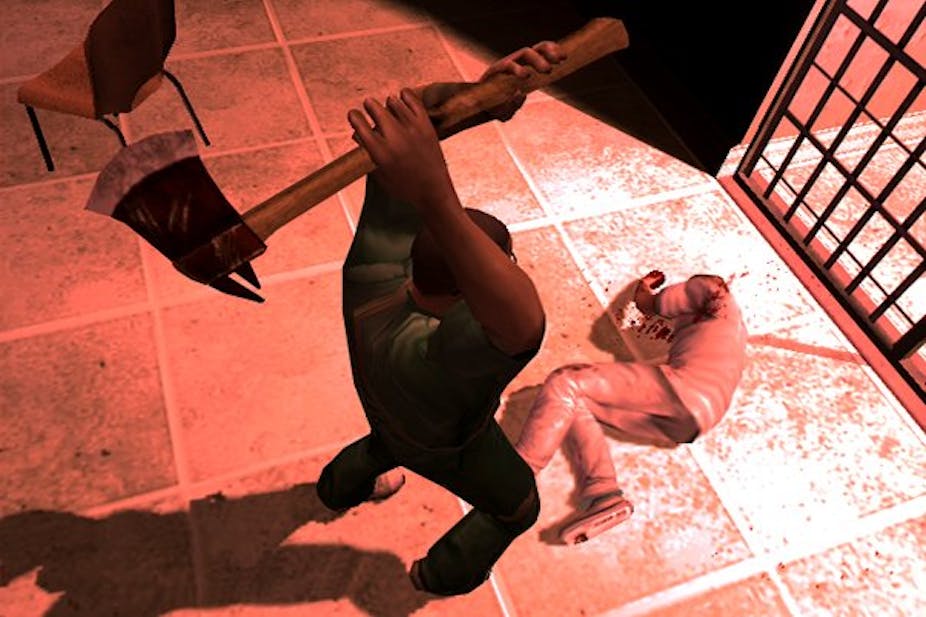Recent events, such as inaccurate claims made by The Sun newspaper about the number of murders committed by the mentally ill, have shown us once again that the media has a large part to play in social attitudes to mental health. But calling on major news organisations to change its ways is no longer a sufficient course of action.
The video game industry in particular has faced criticism in the past for its portrayal of mental health patients and institutions, but instead of waiting for the producers to rethink their tropes, the upcoming Asylum Jam hopes to provide its own alternatives by producing stigma-free content and highlighting media over-reliance on stigmatising themes. In the social media age, this grassroots approach has a lot to offer other types of media.
People in Western countries now spend roughly 12 hours per day interacting with media. Every individual has the opportunity to voice their opinions and have them dramatically amplified in audience through social media. We need to think about how we educate ourselves and each other to prevent damaging and biased opinions from causing harm.
Bigoted viewpoints that might once have been confined to a limited circle of proponents now have the potential to reach millions of malleable minds of all ages, levels of education, and extent of personal experience - and their destructive power is similarly magnified. These opinions are typically combated by advocates for fair, honest and rational representation of vulnerable groups, but for certain minorities, the discourse can be unbalanced. I believe this to be particularly true regarding stigma against the mentally ill.
The negative portrayal of mental illness by mass media is part of the problem; efforts made by passionate individuals toward increasing understanding may be part of the solution.
The problem
Stigma against mental illness tends to manifest in one of several apocryphal beliefs: the mentally ill are dangerous; the mentally ill are unpredictable and untrustworthy; inpatient care facilities for the mentally ill (or asylums) are horrible and barbaric institutions; mental illness inpatients are irredeemably damaged and should not be allowed back into society; mental illness is merely an excuse for personal failings; sufferers of mental illness are weak and merely need to pull themselves up by their bootstraps.
Of these myths, one of the most pervasive and unfortunate common views of mental illness is that patients present an increased risk of violent behaviour, leading to damaging depictions of mental illness sufferers as being dangerous or frightening.
What makes this depiction especially depressing is the fact that not only are the mentally ill no more likely to commit violent offences, they are actually twelve times more likely to be the victims of violent crimes, and this may be an underestimate.
An international issue
Mental illness does not discriminate by nationality, and stigma regarding it is widespread globally. A 2008 survey by the Canadian Institutes of Health Research shows a quarter of Canadians feel fearful or uneasy around the mentally ill and more than 40% would not socialise with a person who had any mental illness.
Meanwhile, in evidence submitted to the Leveson inquiry, UK mental health charity Mind presented findings on the destructive impact of media depictions of mental health. Alarmingly, almost half of UK print media articles on mental illness were found to be stigmatising, and overall media coverage negatively affected mental illness patients in particular.
Half of the UK patients polled by Mind reported a negative impact on their mental health from media portrayal of these issues on their mental health and almost a quarter said they had experienced hostility from neighbours and discrimination at work due to media coverage of mental illness.
Studies on attitudes toward mental illness in developing nations suggest that stigma is similarly widespread.
What makes these views particularly shocking is that mental illness is not only extremely prevalent (estimates range up to more than 40% of the population will be affected at some point), but affects essentially everyone to some degree through our relationships with family, loved ones, friends, and colleagues who experience these conditions.
The media itself bears some responsibility for correcting these attitudes, as the public’s primary source of information on mental illness, and with some depictions being damaging and irresponsible. However, reporting in UK media both recent and past has shown that appealing to the media directly to correct missteps may have little effect.
Toward a solution
To be clear, I’m not advocating for censorship; media content creators need to have autonomy in choosing what they create and how they portray societal issues. The goal of mental health advocacy should not be to police, but to inform and educate regarding the truth behind mythical views on mental illness and the harm of misrepresentation of a massive proportion of the population.
There are vocal advocates and advocacy groups attempting to combat widespread stigma, but the scope of efforts to combat stigma are vastly disproportionate to the extent of suffering and inequality induced by pervasive stigmatic attitudes. To address an issue this widespread, we need a more broad and decentralised effort.
Progress in changing stigma against other marginalised and disenfranchised segments of society, be they racial, sexual, or national, has traditionally relied on both spreading information to counter irrational views and protesting against disparaging portrayals of these minority groups. To these ends, grassroots efforts by individuals represent the most promising avenue for future progress.
In addition to Asylum Jam, media content creators might learn from the widely praised indie game Depression Quest, which aims to combat stigma by providing players with a realistic depiction of the struggles of an individual with depression.
Alongside work performed by large-scale organisations, we need more media like Depression Quest, more events like Asylum Jam, and more action from people like the creators of both to properly reach a large audience and facilitate change through education and action. The ubiquitous nature of stigma and extent of suffering inflicted demands it.

